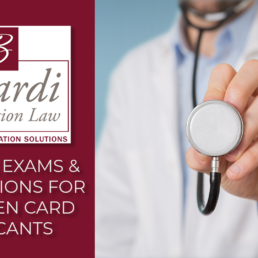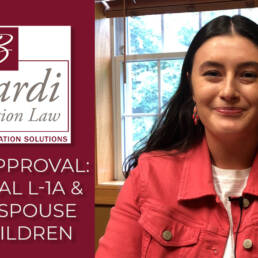Marriage In The US
October 20, 2021
Medical Exams & Vaccinations for U.S. Green Card Applicants
June 14, 2021
The Name Change Process for Naturalized Citizens
March 26, 2021
Naturalization Based on Marriage to a U.S. Citizen
October 2, 2020
K-1 Nonimmigrant Visas
October 1, 2020
I-751 Conditional Residency
November 19, 2019










